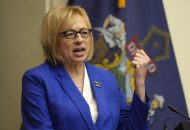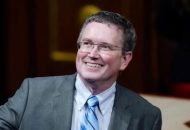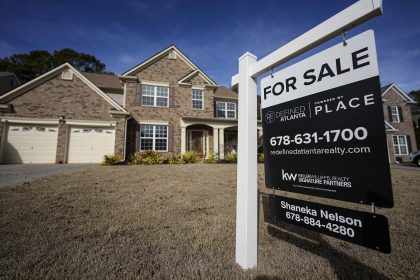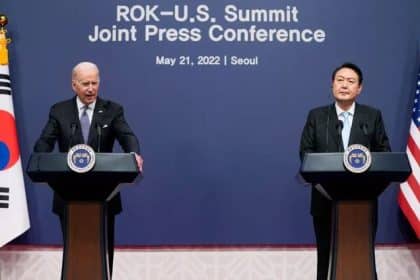Democracy Checkup: Early Lessons From the 2022 Midterms
COMMENTARY
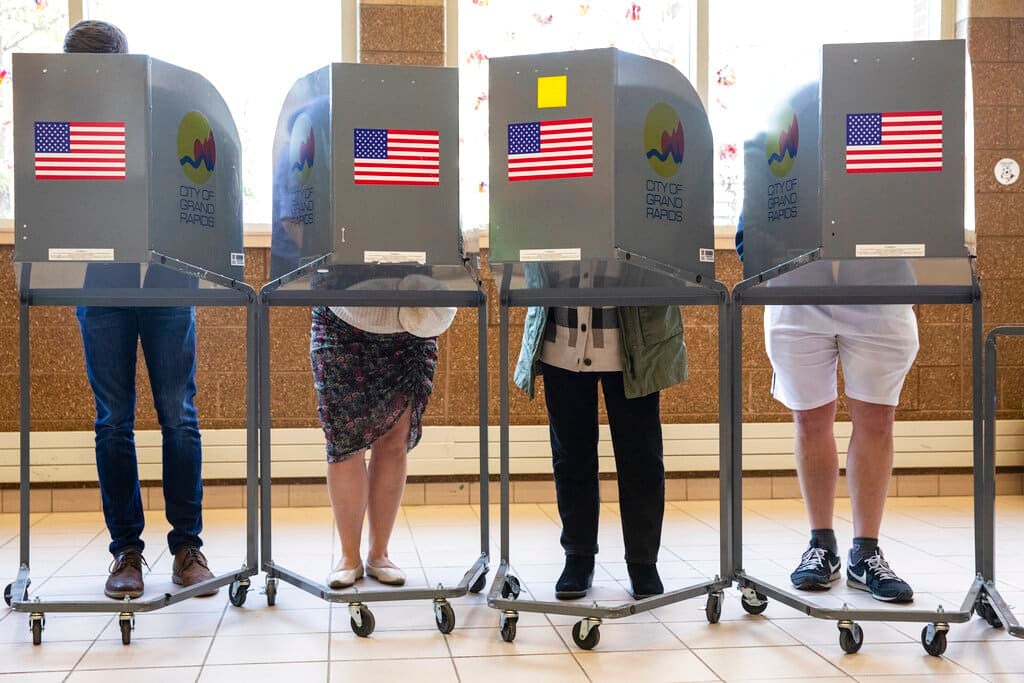
While the final election results are trickling in, there is enough evidence to glean lessons about the health of U.S. democracy. Most importantly, we can celebrate that extremism was largely rejected in closely contested elections, but we cannot let our guard down. The overarching threat to democracy remains all too prevalent.
Voters Largely Overcame Suppression Attempts
Under the guise of “election integrity,” states like Georgia, Texas and others reduced access to polling locations and instituted drastic restrictions on voting. Fortunately, as a Washington Post analysis found, voter enthusiasm was high in many states, with overall participation far surpassing every other midterm this century except for the anti-Trump wave in 2018. Key battleground states such as Arizona, Michigan, Nevada and Pennsylvania exceeded 2018-level turnout, but numbers in states like Georgia and Texas were down slightly and further community-level research must be done to identify communities where turnout was reduced.
Of course, even when voters overcome suppression efforts, that does not justify such tactics. In a healthy democracy, legislators would remove barriers to voting, not erect them.
Voting by Mail and Early Voting Remain Wildly Popular
More than 47 million voters took advantage of voting by mail and/or voting early, according to a preliminary analysis by NBC News, far surpassing the 39 million early voters in 2018. Some states, like Nevada and Maryland, enacted permanent changes first adopted in the 2020 election that made it easier to vote early. State legislators should embrace these safe, secure ways of voting as a way to expand access to our democratic process, while also making it easier to count these votes in a timely manner.
Conspiracy-Driven Intimidation Efforts Fizzled
Election Day came and went without any major issues across the country, according to NPR, despite some instances of voter intimidation during early voting in Arizona, where armed “vigilantes” manned ballot drop boxes.
Candidates Largely Accepted Will of Voters
Despite spreading lies about the 2020 election, many election deniers who lost on Tuesday conceded their races. This list includes GOP gubernatorial candidates Tudor Dixon of Michigan, Dan Cox of Maryland and Tim Michels of Wisconsin, as well as Republican Senate candidates Adam Laxalt of Nevada, Mehmet Oz of Pennsylvania and Blake Masters of Arizona — all endorsed by former President Trump. That’s a good sign about the message voters delivered to these candidates, but we should closely watch challenges by defeated Arizona gubernatorial candidate Kari Lake.
Election Deniers Score Some Victories
Despite losses in key battleground states, Republican election deniers won races to oversee their state elections in Alabama, Wyoming, South Dakota and Indiana. Further, many Republican governors who questioned the 2020 election won election (or reelection). And these officials maintain enormous power when it comes to administering elections.
These candidates routinely spread false narratives about the 2020 election and nonexistent voter fraud. Their susceptibility to conspiracy theories — and their willingness to use their platforms to spread lies — means outside groups will need to be particularly active in order to safeguard future elections.
What’s Next?
Though the dam of democracy largely held authoritarianism at bay, the cracks created by Trump and his allies remain. To preserve and strengthen American democracy, local, state and federal officials must enact meaningful election reform.
And the work must begin immediately.
On the national level, Congress must prioritize pro-democracy legislation. This includes efforts such as the Electoral Count Act as well as robust voting laws like the John Lewis Voting Rights Advancement Act.
Yet, state and local officials cannot wait on Congress to act. State legislatures should work on bills to strengthen voting rights and meaningful election integrity. To the extent possible, elections should be overseen by entities without a political agenda. Legislators must reject bills that inject blatant partisanship into election administration. For example, there is no reason why states cannot expand voter registration access up to and including Election Day. According to the National Conference of State Legislatures, 20 states, from California to Utah, safely and securely allow voters to register on Election Day.
Other reforms could include expanding access to early voting and absentee voting and embracing transparency to reinforce the safety and security of elections. That also means building confidence by taking seriously legitimate questions from the public about security, and not reflexively dismissing them as part of the election-denier movement.
And while acts of political violence were not widespread in 2022, threats of violence against election officials imperil democratic health. In North Carolina, Democratic State Sen. Jay Chaudhuri has proposed legislation to stiffen penalties against those who threaten election workers and provide funding to increase security to protect against specific threats. Every state should work toward similar protections.
No matter what improvements are made, bad actors will spread false narratives. We cannot allow those fringe elements to further erode our confidence in our safe, secure election process. Elected officials should be heartened by midterm results, while also building on this momentum and public support by swiftly enacting laws and policies that strengthen, not weaken, our democracy.
Debbie Cox Bultan is CEO of both the NewDEAL and the NewDEAL Forum. NewDEAL supports a national network of 200 rising state and local officials selected for their innovative, results-oriented approach to governing. The NewDEAL Forum is a nonprofit that identifies and promotes innovative, future-oriented state and local pro-growth progressive policies. The Forum’s Democracy Working Group will release a Democracy Playbook in early 2023 to outline specific policies to strengthen access to voting, election integrity and civic engagement.









